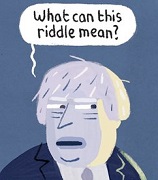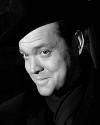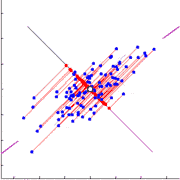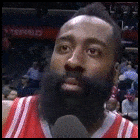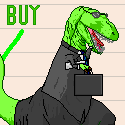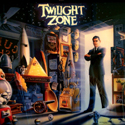|
kthegreat posted:So, I was looking to read Keynes and was wondering exactly what things of his should I look into. Should I just read The Economic Consequences of the Peace and The General Theory of Employment, Interest and Money? Tract on Monetary Reform, Treatise on Probability & Essays in Persuasion are all excellent. Bear in mind there's a fair amount of inconsistency in Keynes as he develops his views, I'd probably recommend reading them in chronological order.
|
|
|
|

|
| # ? Apr 25, 2024 20:16 |
|
Junior G-man posted:We can always put it under the 'intro' literature where Klein etc. reside. It's still a good primer on modern food production chains and the ethics of eating. On a somewhat related note, I haven't seen anything here on Deep Ecology, which is starting to gain some ground and produce (relatively) interesting and important work, if still lacking a high level of sophistication. Endgame and Deep Green Resistance are both books that get a lot of attention in that milieu, but the only direct experience I have with either is skimming a portion of the latter. Its thought provoking, to say the least, and certainly lays out in plain terms the urgency of confronting ecological catastrophe with more than simple consumer activism. Also, Heidegger is required reading for insight into cultural studies/literary studies/philosophy, both as background reading for anything produced in those spheres (all of them are influenced by his work post-1927), and in general as he's possibly the most important 'philosopher' to have emerged since Hegel (I see his work on Hegel was recommended already) and his work touches, albeit indirectly, on all aspects of life. He's one of the few philosophers to have actually had commercial success with his magnum opus(his was Being and Time), reaching a much wider audience than is usual. I'd say his Basic Philosophical Writings would be a great place to start.
|
|
|
|
prestomagic! posted:On a somewhat related note, I haven't seen anything here on Deep Ecology, which is starting to gain some ground and produce (relatively) interesting and important work, if still lacking a high level of sophistication. Endgame and Deep Green Resistance are both books that get a lot of attention in that milieu, but the only direct experience I have with either is skimming a portion of the latter. Its thought provoking, to say the least, and certainly lays out in plain terms the urgency of confronting ecological catastrophe with more than simple consumer activism. Endgame at least is idiotic. It calls for armed rebellion against technology (using the logic that if invading aliens or something poisoned the percent of water and land our society has everyone would take up arms to fight it). But that is such a poorly thought out plan, how would that even work? I'm pretty sure the side saying "no don't give up technology" is going to win in a war with people wanting to give up technology even if the movement got huge.
|
|
|
|
mew force shoelace posted:Endgame at least is idiotic. It calls for armed rebellion against technology (using the logic that if invading aliens or something poisoned the percent of water and land our society has everyone would take up arms to fight it). Yeah, I'm aware. And don't get me wrong, I'm not an advocate of deep ecology. However, I think that they're similar in many respects to the Luddites, and I don't mean that in a purely negative way. I feel that they may be expressing, albeit in a crude manner, something crucial to the dynamics of the way that 21st century social struggles will play themselves out at a theoretical and practical level. That's the reason I think their work calls for attention. I admire the urgency with which they address the ecological issues we face and their attempt to formulate that at the theoretical level, even if I don't admire the result of that attempt.
|
|
|
|
Just finishing Griftopia, it's definitely a worthy addition to the reading list. Has anyone read Fukuyama's Origin of the Political Order yet? I just ordered it for my summer reading.
|
|
|
|
I'm reading Delusions of Gender and can confirm that it is excellent. For a new recommendation, I recently finished The People of the Abyss by Jack London. Its subject matter of poverty in turn of the century London is somewhat outdated, but there is a fundamental humanity and a lot that still resonates, both in contemporary reality and as a warning for where contemporary reality might go as the austerity project continues.
|
|
|
|
I'm currently reading Dying to Win: The Strategic Logic of Suicide Terrorism and would be grateful is someone could tell me if Suicide by Emile Durkheim is worth reading and if so how readable it is.
|
|
|
|
I haven't read the Durkheim book, but I can tell you that Robert Pape's analysis in Dying to Win is so flawed as to be worthless. This and this (it's about his second book, but it's basically the same poo poo) give decent summaries of the problems with his theory. He relies on sloppy statistics and an absurdly broad definition of occupation to support his theory that suicide bombing is a to military occupation, even though many suicide bombings he includes in the book weren't in response to what most people would consider an occupation. Then he fails to examine occupations where the resistance didn't use suicide bombings as a tactic, which would have allowed him to determine if there was perhaps a secondary cause.
|
|
|
|
Xandu posted:I haven't read the Durkheim book, but I can tell you that Robert Pape's analysis in Dying to Win is so flawed as to be worthless. This and this (it's about his second book, but it's basically the same poo poo) give decent summaries of the problems with his theory. I agree that so far it's not very good and he does seem to have a habit of manipulating data and definitions so that they supports his conclusion rather than the other way round as well as using far too specific samples form which he draws far too large conclusions (http://www.princeton.edu/~kramsay/Site/research_files/rejoinder3.pdf), but the bit in which he mentioned Durkheim's categorisation of different types of suicides (egoistic, fatalistic, altruistic and anomic) sounded pretty interesting. Z-Magic fucked around with this message at 23:08 on Jul 17, 2011 |
|
|
|
Z-Magic posted:I'm currently reading Dying to Win: The Strategic Logic of Suicide Terrorism and would be grateful is someone could tell me if Suicide by Emile Durkheim is worth reading and if so how readable it is. Suicide is really good, the first bit is a bit slow going because it's just a large amount of stats as arguments against various reasons that people might commit suicide but after that I found it fairly easy to read.
|
|
|
|
Z-Magic posted:I agree that so far it's not very good and he does seem to have a habit of manipulating data and definitions so that they supports his conclusion rather than the other way round as well as using far too specific samples form which he draws far too large conclusions (http://www.princeton.edu/~kramsay/Site/research_files/rejoinder3.pdf), but the bit in which he mentioned Durkheim's categorisation of different types of suicides (egoistic, fatalistic, altruistic and anomic) sounded pretty interesting. Durkheim's study "Suicide" has some deep methodological flaws, but his view of the different forms of social attachment in tandem with his theories of solidarity in society (mechanical and organic) are worth reviewing. It is a shame Google Books doesn't have a preview for "The Emergence of Sociological Theory" by Turner et al. If your local library has a copy it would be a good introduction to Durkheim and to the unfolding of sociological theory in general.
|
|
|
|
Can anybody recommend what would be the best place to start off with conservative ideas. Something which might explain the basics of people like Burke, Hobbes, Smith, Hayek, Friedman, Locke, Paine, Rousseau, De Tocqueville without me diving into their works individually!
|
|
|
|
Ravel posted:Can anybody recommend what would be the best place to start off with conservative ideas. Something which might explain the basics of people like Burke, Hobbes, Smith, Hayek, Friedman, Locke, Paine, Rousseau, De Tocqueville without me diving into their works individually! Well, those individuals are liberal theorists. But more to the point, I'll say that I've never found, in all my years of studying philosophy, that there's really an effective "primer" for theoretical works, single ones or large bodies/periods of work. Its just not the way its done. There are "history of philosopy" texts which will include a very rough outline of a many thinkers ideas, but this approach lacks the depth required to really understand the ideas in question (I'm thinking here of Fred Copleston's History of Philosophy series). On the other hand, there are the more explicitly academic texts regarding history of philosophy, but you really need to have some familiarity with the thinker in question to navigate these tomes (here I'm reminded of reading "Kierkegaard's relation to Hegel, Reconsidered" by Jon Stewart... massive and complex). Finally, there are the companion books, but these can only be read in conjunction with the primary text. Really, you're better off just exploring the works of enlightenment thinkers if you are interested in their ideas. I'm biased towards that due to my own thinking and from the standpoint of my education, but I'd say you'll come away from the experience much better off than simply reading the bumper sticker version of the thoughts these men held on the world of their day (and make no mistake, we don't live in that world anymore, their thoughts are recognizably antiquated when read in full). It would be very helpful in making suggestions to you regarding how to proceed if you could explain what it is you are looking to gain from reading these thinkers, what interests you about them, etc.
|
|
|
|
Ravel posted:Can anybody recommend what would be the best place to start off with conservative ideas. Something which might explain the basics of people like Burke, Hobbes, Smith, Hayek, Friedman, Locke, Paine, Rousseau, De Tocqueville without me diving into their works individually! Liberalism and Empire deals with the apparent philosophical contradiction between the ideas of liberalism and the practice of the British Empire, and tries to argue that, in fact, empire was a natural outcome of liberal thought. Burke, John Stuart Mill and a number of other thinkers are covered in this book. http://www.amazon.com/Liberalism-Empire-Nineteenth-Century-British-Liberal/dp/0226518825 If you have access to jstor this article deals with the place of conservatism in modern historiography: http://www.jstor.org/pss/2167281 (there are a number of other articles on the same topic in that journal as well.)
|
|
|
|
prestomagic! posted:It would be very helpful in making suggestions to you regarding how to proceed if you could explain what it is you are looking to gain from reading these thinkers, what interests you about them, etc. Oh right, when I did my physics undergraduate degree I was so used to incredibly useful comprehensive textbooks which covered all basic subjects and some remained useful for almost three years. I assumed somebody must have some sort of philosophy equivalent but I checked the reading list for first year undergraduate studies of political science and philosophy and it was all original texts. I was a bit put off since I assume that without an accompanying lecture course I would completely miss historical context and be hopelessly lost due to the density of unfamiliar terms. I just wanted some basic understanding of the history of political philosophy since I don't know much about it. I'd like to know what motivates the conservative thinkers because I don't really know what conservatism is. I copy/pasted those names from recommendations by a friend of mine who studies International Relations. plogo posted:These two recommendations are not directly answering your request but you might find them interesting none the less. Thanks they do look interesting. Ravel fucked around with this message at 06:13 on Jul 18, 2011 |
|
|
|
Ravel posted:Oh right, when I did my physics undergraduate degree I was so used to incredibly useful comprehensive textbooks which covered all basic subjects and some remained useful for almost three years. I assumed somebody must have some sort of philosophy equivalent but I checked the reading list for first year undergraduate studies of political science and philosophy and it was all original texts. I was a bit put off since I assume that without an accompanying lecture course I would completely miss historical context and be hopelessly lost due to the density of unfamiliar terms. If you really want a general history of philosophy book, Fred Copleston's are decent. Also, there's Bertrand Russell's History of Philosophy, which I hear is a pretty mixed bag (lots of folks, myself included, are not fans of the dude). Ravel posted:I just wanted some basic understanding of the history of political philosophy since I don't know much about it. I'd like to know what motivates the conservative thinkers because I don't really know what conservatism is. I copy/pasted those names from recommendations by a friend of mine who studies International Relations.
|
|
|
|
You might want to see if Roger Scruton is anyone who appeals to you. He's written some books on conservatism, such as Meaning of Conservatism and A political philosophy: Arguments for conservatism. Not one of the 'original thinkers' but perhaps it's okey anyway.
|
|
|
|
If anyone is interested in the synergy between thermodynamics and economics, I recommend The Entropy Law and the Economic Process by Nicholas Georgescu-Roegen. This book falls into both environment and economic catagories, as it explores amoung other things the implications of material entropy for economic production, growth and long term sustainability. [There is also an extensive critique, e.g. AYRES, R. U. 1999. The second law, the fourth law, recycling and limits to growth. Ecological Economics, 29, 473-483. CLEVELAND, C. J. & RUTH, M. 1997. When, where, and by how much do biophysical limits constrain the economic process? A survey of Nicholas Georgescu-Roegen's contribution to ecological economics. Ecological Economics, 22, 203-223.]
|
|
|
|
I just finished What's the Matter with Kansas by Thomas Frank. I thought it did a good job on how the south, and Kansas in particular, went from early-1900s populist socialism to late-1900s pseudo-populist conservatism. It had less to do with racism and civil rights than I thought it would.
|
|
|
|
SATANIC DETERGENT posted:I just finished What's the Matter with Kansas by Thomas Frank. I thought it did a good job on how the south, and Kansas in particular, went from early-1900s populist socialism to late-1900s pseudo-populist conservatism. It had less to do with racism and civil rights than I thought it would. I read this a few months back, It is pretty good. Fairly quick and easy read, good up close look at how social conservatism has been used to get people to vote against their economic interests. I just finished Nixonland by Rick Perlstein, I highly recommend it. It is an overview of American politics and social change during the 60s and early 70s. Nixon is placed as the central figure, but it is really about how and why American society and politics changed during that time period and how that still dominates our politics now. Which brings me to a question: Does anyone have a recommendation for a book about American politics and the general social atmosphere that covers the 1970s? I'm looking for something similar to Nixonland that covers 1972-1980, or some range similar to or within that, and particularly the 1976 election.
|
|
|
|
Enigma of Capital was a good read, thanks thread. Since it just came up in the socialist techniques thread, does anyone have recommendations for good books on Cuba or the Latin American left more generally? I've read Killing Hope.
|
|
|
|
G-Hawk posted:Which brings me to a question: Does anyone have a recommendation for a book about American politics and the general social atmosphere that covers the 1970s? I'm looking for something similar to Nixonland that covers 1972-1980, or some range similar to or within that, and particularly the 1976 election. Fear and Loathing on the Campaign Trail '72 by Hunter S. Thompson might have what you're looking for if you haven't read that already. Despite the name it isn't a completely out there bughunt like Las Vegas is, just a partially out there bughunt with a lot of really good journalism back before fame ate him up. Just a brutal look at some seventies era Democrats and how completely depressing and awful they were. More things change the more they stay the same. I haven't read it but, Perlstein's earlier book Before the Storm essentially acts as a prequel for Nixonland, detailing the '64 election, Barry Goldwater and the rise of the conservatives. Heard it's good.
|
|
|
|
I'm a bit late but the Very Short Introduction series by OUP is normally pretty good for giving you a decent sketch of a movement or idea or person etc. Obviously any summary will be flawed but these tend to give a decent overview without oversimplifying.
|
|
|
|
I just read "Radical Homemakers" by Shannon Hayes. Anarco-sociolist feminism, that seeks to re-claim and re-define the idea of "homemaker." I can't say I agreed with all it's themes (particularly those regarding healthcare), but it was one hell of a read.
|
|
|
|
Authorman posted:Fear and Loathing on the Campaign Trail '72 by Hunter S. Thompson might have what you're looking for if you haven't read that already. Despite the name it isn't a completely out there bughunt like Las Vegas is, just a partially out there bughunt with a lot of really good journalism back before fame ate him up. Just a brutal look at some seventies era Democrats and how completely depressing and awful they were. More things change the more they stay the same. It's been a few years since I've read it, but I have to back this recommendation too. The biggest thing I got out of it from modern eyes is that the democrats were just as bad at political maneuvering then.
|
|
|
|
prestomagic! posted:On a somewhat related note, I haven't seen anything here on Deep Ecology, which is starting to gain some ground and produce (relatively) interesting and important work, if still lacking a high level of sophistication. Endgame and Deep Green Resistance are both books that get a lot of attention in that milieu, but the only direct experience I have with either is skimming a portion of the latter. Its thought provoking, to say the least, and certainly lays out in plain terms the urgency of confronting ecological catastrophe with more than simple consumer activism. I think you would enjoy the comparatively shorter Introduction to the Apocalypse. It is an insurrectionary anarchist take on climate change rather than anti-civ/primitivist like Endgame and Deep Green Resistance.
|
|
|
|
Are there any books about the efficacy of our welfare state? I've been recommended Regulating the Poor: The Functions of Public Welfare by Francis Piven, but it was by a rabid right-winger so if I am going to read it, I would like to balance it out. Any suggestions? Has anyone ever read that book?
|
|
|
|
G-Hawk posted:I read this a few months back, It is pretty good. Fairly quick and easy read, good up close look at how social conservatism has been used to get people to vote against their economic interests. I just finished Stayin Alive by Jefferson Cowie, it focuses on the death of the labor movement in the late 1960s and the 1970s as an effective and unified force in politics, and the effect of that change on the Democratic party and American political culture. Really an great read on this topic.
|
|
|
|
I'm about 100 pages into Debt: The First 5000 Years and it may be one of the best books I've ever read, everybody here should read it. http://www.amazon.com/Debt-First-5-000-Years/dp/1933633867
|
|
|
|
BrotherAdso posted:I just finished Stayin Alive by Jefferson Cowie, it focuses on the death of the labor movement in the late 1960s and the 1970s as an effective and unified force in politics, and the effect of that change on the Democratic party and American political culture. This sounds great, I'll definitely have to find it. I didn't specifically mention labor but the collapse of labor and the effect that had on the Democratic party is one of the things about the 70s I'd like to know about, so thanks for the recommendation.
|
|
|
|
Econosaurus posted:I'm about 100 pages into Debt: The First 5000 Years and it may be one of the best books I've ever read, everybody here should read it. This is the absolute truth, its been very difficult to put this book down. I've been recommending this one to everyone I know that reads.
|
|
|
|
Wala Mango posted:I think you would enjoy the comparatively shorter Introduction to the Apocalypse. It is an insurrectionary anarchist take on climate change rather than anti-civ/primitivist like Endgame and Deep Green Resistance. Note that I'm not the person you recommended this to originally so it doesn't have to be be ecologically-focused.
|
|
|
|
G-Hawk posted:This sounds great, I'll definitely have to find it. I didn't specifically mention labor but the collapse of labor and the effect that had on the Democratic party is one of the things about the 70s I'd like to know about, so thanks for the recommendation. You might also enjoy The Consumer's Republic by Elizabeth Cohen, which is mostly about the way mass consumer media and material wealth altered American political culture and approaches from the late 1930s through the 1970s, really fascinating read.
|
|
|
|
I'm looking for some books on Darfur and Sudan. Anybody read Saviors and Survivors by Mahmood Mamdani or Darfur: A New History of A Long War by Alex de Waal?
Xandu fucked around with this message at 02:05 on Aug 16, 2011 |
|
|
|
Darth Windu posted:Are there any books about the efficacy of our welfare state? I've been recommended Regulating the Poor: The Functions of Public Welfare by Francis Piven, but it was by a rabid right-winger so if I am going to read it, I would like to balance it out. Any suggestions? Has anyone ever read that book? While a rabid right-winger might have recommended it, Piven is pretty far to the left politically.
|
|
|
|
anabatica posted:This was a really good read, can you recommend any other similar (in length/style) pieces on anarchism? Of course! So I take it you're interested in poo poo that's fun to read, stylish basically, which is a lot of what anarchist texts are, in affect. It's hard though to recommend some texts because there are thousands that fit the bill. As well, anarchism varies wildly in content and outlook. But, here are some things I've read recently that I enjoy and would recommend: The Coming Insurrection by the Invisible Committee - A particularly influential book to US anarchists. Written by a bunch of French communinists. Stunning work, along with their others, as well as the works of Tiqqun, who are probably the same people. The Coming Insurrection is more poetic than Tiqqun's work, which I'd say has more useful analysis. Infinite Strike which is in the context of the October 2010 French strike and blockades. Before the Big Change by Peter Gelderloos - Short article on climate change. (His book How Nonviolence Protects the State is a good read on the prevalence of nonviolence in US activism especially.) At Daggars Drawn is an Italian insurrectionist pamphlet written in the late 90's. Promissory Notes: From Crisis to Commons by Midnight Notes Collective and Friends - Midnight Notes is autonomist Marxist, but this recent piece has the same Grand, Dramatic, State of the Moment feel as the Intro to the Apocalypse text. And European anarchism is very influenced by autonomism. But browsing these libraries gives you an opportunity to find a topic you're interested in: Libcom has an extensive library. As the name suggests, it is a libertarian communist site so it is focused on work and anarcho-syndicalism rather than on post-left anarchy (stuff that's popular in the US) and also the insurrectionist tendencies of say Greece in late 2008 and the aggressive Fire to the Prisons. As well as: http://theanarchistlibrary.org/ http://zinelibrary.info/ http://www.prole.info/
|
|
|
|
I've just started reading Last Call: The Rise and Fall of Prohibition It's really intresting how everyone from the IWW, KKK, Socialists, Christians, William Jennings Bryan, Jack London, Progressives, and racists all supported Prohibition. It would be great if American politics could achive that unity today for a better cause.
|
|
|
|
Nckdictator posted:I've just started reading Last Call: The Rise and Fall of Prohibition Does that only focus on prohibition in America?
|
|
|
|
Wala Mango posted:Of course! So I take it you're interested in poo poo that's fun to read, stylish basically, which is a lot of what anarchist texts are, in affect. It's hard though to recommend some texts because there are thousands that fit the bill. As well, anarchism varies wildly in content and outlook. But, here are some things I've read recently that I enjoy and would recommend: Awesome, thanks. I did have a look around http://theanarchistlibrary.org/ after reading 'Introduction to the Apocalypse', but most of what I browsed to was either quite dry or obviously written as blog posts by 20 year old American college students. Thus I figured I needed some recommendations. 
anabatica fucked around with this message at 19:35 on Aug 17, 2011 |
|
|
|

|
| # ? Apr 25, 2024 20:16 |
|
diphenhydramine posted:Does that only focus on prohibition in America? Pretty much, I mean, it gave a few sentences so far devoted to prohibition in European nations but it's mainly concentrated on America. anabatica posted:Awesome, thanks. I did have a look around http://theanarchistlibrary.org/ after reading 'Introduction to the Apocalypse', but most of what I browsed to was either quite dry or obviously written as blog posts by 20 year old American college students. Thus I figured I needed some recommendations. Thanks for the link, a few good essay's by/on Tolstoy there. Nckdictator fucked around with this message at 21:57 on Aug 17, 2011 |
|
|





